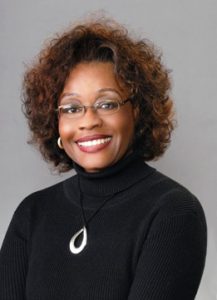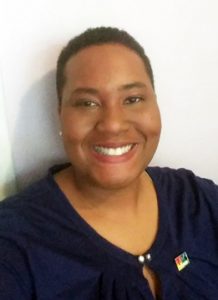By Tricia Hall
Sojourner’s Truth Reporter
State Representative Paula Hicks-Hudson sponsored a virtual chat on July 8, 2020. The 75-minute conversation included Doni Miller, CEO of Neighborhood Health Association, and Sheena Barnes, Toledo Board of Education member. The meeting is connected to a series of digital summer events where local statehouse lawmakers provide updates, called the Ohio Promise Virtual Town Hall Tour.
State Representative Hicks-Hudson opened the virtual meeting by introducing both guests and explaining their credentials. “I want to thank each of you for joining me for this virtual chat. I want to welcome my two friends, Doni Miller and Sheena Barnes. Today we’re going to have a conversation. We’re going to talk about what’s going on at the statehouse and how legislative decisions are hitting on the local front.”
The first 15 minutes provided Hicks-Hudson with the opportunity to explain to the viewers the actions taken by the legislature and provide the discussion framework. “In the statehouse we want to deliver results to the taxpayers. We have passed 13 priority bills, one of those was mine and reduces sentences for drug offenses. We have passed a bill that invests in our children but the budget was hit hard due to COVID-19. We are still attacking systemic racism, which has rose to the forefront in the last few months,” explained Hicks-Hudson.
The conversation shifted to the first of two topics: healthcare. Hicks-Hudson described House Concurrent Resolution 31 to the audience. According to The Ohio Legislature website, the resolution would declare racism a public health crisis and promote racism equity. Representatives Stephanie House of District 11 and Representative Erica Crawley of District 26 are the primary sponsors.
The following representatives are listed as co-sponsors: Gill Blair, Kristin Boggs, Janine Boyd, Juanita Brent, Richard Brown, Jack Cera, Randi Clites, Jeffrey Crossman, Sedrick Denson, Paula Hicks-Hudson, Catherine Ingram, Brigid Kelly, David Leland, Michele Lepore-Hagan, Mary Lighbody, Beth Liston, Joe Miller, Jessica Miranda, Michael O’Brien, John Patterson, Phil Robinson, John Rogers, Allison Russo, Michael Skindell, Kent Smith, Lisa Sobecki, Bride Sweeney, Emilia Sykes, Terrence Upchurch, Casey Weinstein, and Thomas West.
Doni Miller explained to the viewers that people must take care of  their health, especially if they are at risk, and explained the healthcare system must improve. “I want to talk about healthcare for black folks in Ohio, what we can do for ourselves and what we can demand from those elected to represent us. Black folks are dying at amazing rates from diabetes, heart disease and high blood pressure. We live in communities with housing that makes us sick. Racism in healthcare is structural and impacts medical services, provider training, facility design, and even facility placement. Those are designed to hurt us, but we can’t die waiting on this system to change,” said Miller.
their health, especially if they are at risk, and explained the healthcare system must improve. “I want to talk about healthcare for black folks in Ohio, what we can do for ourselves and what we can demand from those elected to represent us. Black folks are dying at amazing rates from diabetes, heart disease and high blood pressure. We live in communities with housing that makes us sick. Racism in healthcare is structural and impacts medical services, provider training, facility design, and even facility placement. Those are designed to hurt us, but we can’t die waiting on this system to change,” said Miller.
Neighborhood Health Association is one of the key Covid-19 testing partners and according to Miller these common concerns:
– Patients can’t catch coronavirus by taking the test,
– Coronavirus is not the flu,
– Testing is important for the patient and the family,
– Serious cases of coronavirus can impact a patient for three months,
– Call the Lucas County Health Department or Neighborhood Health Association for test sites.
“COVID-19 is three times more likely to impact a black person or person of color. We are dying daily, and we aren’t making health issues a real priority,” said Miller.
The conversation shifted to the final topic: education in Ohio schools. Sheena Barnes, newly elected Toledo Public School board member, discussed House Bill 197. Hicks-Hudson described this bill as, “a way to suspend third grade reading towards grade promotion.”
“I am proud of what Toledo Public Schools is doing for social  education justice, this is connected to what we’re talking about here, and connected to the number of jail cells for African Americans. Reading levels are connected to the number of school resource officers needed and disciplinary problems,” explained Barnes.
education justice, this is connected to what we’re talking about here, and connected to the number of jail cells for African Americans. Reading levels are connected to the number of school resource officers needed and disciplinary problems,” explained Barnes.
Toledo Public Schools mobilized resources once the state announced the stay-at-home order in March, these resources included: buses that carried WiFi, computers, WiFi hotspots, and weekday lunches. According to Barnes, TPS still couldn’t provide resources to every student due to homelessness.
“We have the highest percentage of youth homelessness in Ohio for any school district. We feel short feeding the kids during COVID, but it’s not because of TPS but because some of these kids are so mobile and move from place to place. We need the state to assist us with this and get to know the kids in this community,” said Barnes.
“Northwest Ohio is different than other parts of Ohio, and it’s important that these voices are heard. I want to thank my sisters in the struggle and thank each of you for taking this time to join us today,” concluded Hicks-Hudson during her final remarks.
